What is Express PCB?
Express PCB is a rapid prototyping service for printed circuit boards (PCBs) that allows customers to quickly and easily design, manufacture, and assemble their PCB projects. This service is ideal for engineers, hobbyists, and businesses that require fast turnaround times for their PCB Prototypes or small-batch production runs.
Benefits of Express PCB Services
- Quick turnaround times
- Cost-effective for small quantities
- Streamlined design and ordering process
- Wide range of PCB specifications available
- Assembly options for complete prototypes
Key Considerations for Express PCB Manufacturing
When utilizing Express PCB manufacturing services, there are several important factors to keep in mind to ensure the success of your project.
PCB design guidelines
Adhering to the manufacturer’s PCB design guidelines is crucial for ensuring that your boards can be produced efficiently and with high quality. Some key aspects to consider include:
- Minimum trace width and spacing
- Drill hole sizes and spacing
- Solder mask and silkscreen requirements
- Copper weight and thickness
- Via and pad sizes
| Parameter | Minimum Value |
|---|---|
| Trace width | 0.15 mm |
| Trace spacing | 0.15 mm |
| Drill hole size | 0.3 mm |
| Copper thickness | 1 oz (35 μm) |
Material Selection
Choosing the appropriate PCB material is essential for the performance and reliability of your board. Some common materials used in Express PCB manufacturing include:
- FR-4: A popular, cost-effective choice for general-purpose applications
- High Tg FR-4: Offers better thermal stability and performance than standard FR-4
- Aluminum: Used for PCBs that require excellent heat dissipation
- Flexible PCBs: Made from polyimide or other flexible substrates for applications that require bending or folding
Layer Stack-up
The number of layers and their arrangement in the PCB stack-up can significantly impact the performance and cost of your board. Consider the following when deciding on your layer stack-up:
- Number of layers required for your design
- Signal integrity requirements
- Power and ground plane placement
- Impedance control for high-speed signals
| Layer | Purpose |
|---|---|
| Top | Signal, components |
| Inner 1 | Ground plane |
| Inner 2 | Power plane |
| Bottom | Signal, components |
DFM Analysis
Before submitting your design for manufacturing, it’s essential to perform a Design for Manufacturability (DFM) analysis. This process helps identify potential issues that could lead to manufacturing defects or delays. Many Express PCB service providers offer DFM analysis as part of their ordering process, helping you catch and resolve problems early on.
Express PCB Assembly Considerations
When opting for Express PCB assembly services, there are additional factors to consider to ensure a smooth and successful build.
Component Selection
Choosing components that are readily available and compatible with the assembly process is crucial for avoiding delays and ensuring the quality of your assembled boards. Consider the following:
- Use components with standard package sizes and pitches
- Select components that are in stock and have short lead times
- Avoid using obsolete or hard-to-find components
- Ensure component footprints match the actual parts
Solder Paste Stencil Design
A well-designed solder paste stencil is essential for achieving reliable solder joints during the assembly process. Keep these points in mind when designing your stencil:
- Aperture sizes should be appropriate for the component pads
- Include fiducial marks for accurate stencil alignment
- Consider using stepped stencils for components with varying heights
- Ensure adequate clearance between apertures to prevent solder bridging
Assembly File Generation
To ensure a smooth assembly process, it’s important to provide your Express PCB assembly provider with accurate and complete assembly files. These typically include:
- Bill of Materials (BOM): A list of all components used in the design, including quantities, part numbers, and descriptions
- Pick and Place file: Specifies the location and orientation of each component on the PCB
- Gerber files: Contains information about the PCB Layers, drill holes, and other features
- Assembly drawings: Provides visual guidance for component placement and orientation
Inspection and Testing
After assembly, your Express PCB provider should perform thorough inspection and testing to ensure the quality and functionality of your boards. Common inspection and testing methods include:
- Automated Optical Inspection (AOI): Uses cameras and image processing to detect solder joint defects and component placement issues
- X-ray inspection: Allows for the examination of solder joints and components hidden beneath other parts
- In-Circuit Testing (ICT): Verifies the presence and correct placement of components, as well as the continuity of traces and connections
- Functional testing: Tests the board’s performance under real-world operating conditions to ensure it meets the design specifications

Frequently Asked Questions (FAQ)
1. What is the typical turnaround time for Express PCB manufacturing and assembly?
Express PCB manufacturing and assembly services typically offer turnaround times ranging from 24 hours to 5 business days, depending on the complexity of the design and the chosen service level.
2. What is the minimum order quantity for Express PCB services?
Many Express PCB providers offer low minimum order quantities, often starting at just 1 or 5 pieces. This makes Express PCB services ideal for prototyping and small-batch production.
3. Can I get a quote for my Express PCB project before placing an order?
Yes, most Express PCB service providers offer instant online quoting tools that allow you to enter your PCB specifications and receive a quote within minutes.
4. What file formats are required for submitting my Express PCB design?
The most common file formats for Express PCB manufacturing include Gerber files (RS-274X), drill files (Excellon), and pick and place files (CSV or TXT). Some providers may also accept native CAD files from popular PCB design software.
5. Can I specify custom requirements for my Express PCB project, such as special materials or finishes?
Yes, many Express PCB providers offer a range of customization options, including different materials, surface finishes, and soldermask colors. However, custom requirements may impact the turnaround time and cost of your project.
Conclusion
Express PCB manufacturing and assembly services provide a fast and cost-effective solution for bringing your PCB designs to life. By understanding the key considerations for PCB design, material selection, layer stack-up, and assembly, you can ensure the success of your Express PCB project. Partnering with a reliable Express PCB service provider and following their guidelines will help you achieve high-quality results and quick turnaround times for your PCB Prototypes and small-batch production runs.
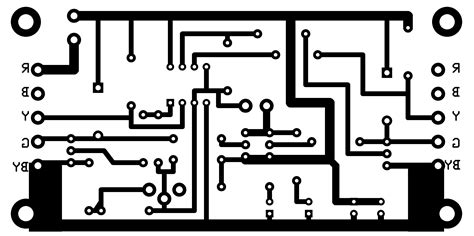
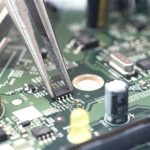
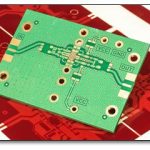
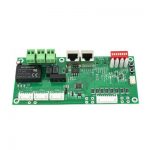
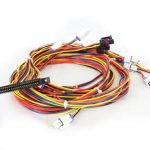
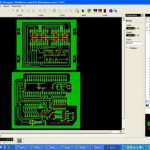
Leave a Reply